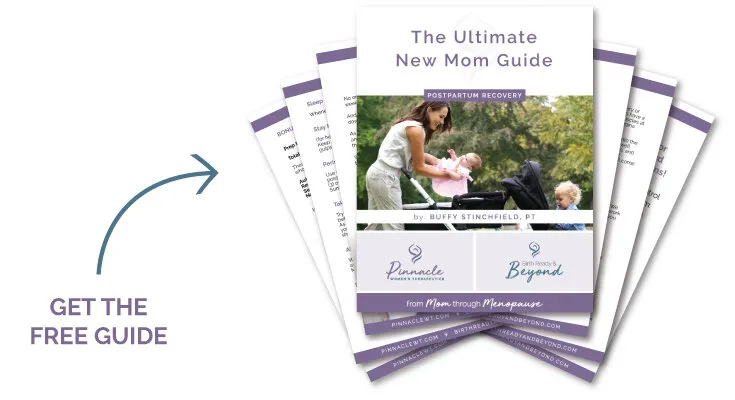How About We Use a Pre-Flight Checklist
Six weeks postpartum. What I still remember from 11, 9 and 3 years ago…
-
My babies weren’t sleeping much at night→ hello sleep deprivation!
-
My chest was still feeling pretty sore and was still trying to calibrate to what baby needed
-
Bleeding? Mostly stopped, but it wasn’t normal yet by any means.
-
The stitches? Yah, with my 3rd baby, I laughed hysterically at the thought of going back to church at that point and sitting on the hard chairs in Sunday school. HECK NO! I still had to sit sort of to one side cuz things down there were still not very happy. And the Dr was right when she mentioned that the stitches would suddenly feel tight in an uncomfortable way around 6 weeks. (I was one of those lucky ones that tore each time)
-
My belly was so not mine. Like a deflated tire and super weak feeling.
-
Bladder? Well, let’s just say it wasn’t yet super reliable with a jump or a sneeze.
Does this sound like I was ready to hit the gym, have sex, or work a full day on my feet? Not by a long shot.
At my 6 week follow-ups, I went in, had my blood pressure taken, peed in a cup, and everyone oohed and ahhed at my adorable baby. And I filled out a questionnaire to screen for postpartum depression for the third baby.
Due to the primary focus for birth professionals being the pregnancy and delivery, this last visit seemed to be a mere formality. They were happy for us that we both arrived at the due date healthy and safe.
They had done their job.
So at 6 weeks, unless I was in obvious distress or had a major concern, we were done. And I don’t have ANY resentment with my birth team about this. Because this was what I and my insurance had paid them for. To DELIVER my baby.
But the reality is that we are JUST BEGINNING.
JUST BEGINNING to heal.
JUST BEGINNING to learn how to care for this baby.
JUST BEGINNING to try to find a new normal.
JUST BEGINNING the LONG JOURNEY to recovering from pregnancy and labor.
What gets me THE MOST at this point as a MOTHER and as a PELVIC PT for a decade is that to the OUTSIDE WORLD, we may “LOOK” FINE. Some women will drop weight crazy fast and appear to have returned to “normal” within weeks. Others will keep some extra weight and perhaps stay looking pregnant for some time.
But how a woman LOOKS has NOTHING to do with how she is recovering. We CANNOT even BEGIN to think we know how a new mom is recovering based on how they LOOK.
We could gather 10 new moms, all at 6 weeks postpartum and I can guarantee this:
-
They will all have had DIFFERENT birth stories
-
They will all have DIFFERENT medical histories
-
Their pelvic health will all be drastically DIFFERENT. One may be in absolute spasm and in pain. One may have had an injury and has almost no ability to engage the muscles their baby just passed through 6 weeks ago. Another will be perfectly fine.
-
How they FEEL will be DIFFERENT with their joints, spine and pelvis after carrying a baby and then transitioning to holding a 10-pound baby and nursing them almost 24 hours a day.
-
One may now be in a hormonal tailspin with thyroid and adrenals going haywire and their body trying to rebalance the best it can with poor sleep, diet, and new stress level.
-
One may have had major injury to the ligaments that suspend her pelvic organs and she is now feeling a new, foreign, and uncomfortable heaviness that she has NO IDEA what to do about. Because NO ONE ASKED her if she had this symptom or told her this is a possibility that can happen and she can get help for.
This new postpartum phase is now being called THE 4th TRIMESTER.
But is that enough?? Giving this highly variable life phase a new name?
What we have YET to do for women is create a new postpartum protocol. One that is not limited to women who are educated about women’s health and go out of their way (despite sleep deprivation and stress) and seek out care.
A pre-flight checklist to be able to confidently (and with actual objective information) give women the go-ahead to return to their pre-pregnancy or pre-delivery activities. This checklist should include specific questions AND a musculoskeletal assessment by a pelvic and core health specialist physical therapist.
So as a mom of 3 and a pelvic specialist physical therapist for a decade, the following is a part of MY postpartum checklist:
Questions a new mom should be asked:
-
Do you have PAIN in your pelvic floor, pelvis, back, abdomen or hips?
-
Do you have full control of your bladder?
-
Do you have full control of gas and stool?
-
If you have attempted to have sex, was it uncomfortable or painful?
-
Do you feel a heaviness in your pelvic floor?
-
Are you constipated?
-
Do you have pain while sitting?
What NEEDS to be ASSESSED by a musculoskeletal and pelvic health expert:
-
Abdominal Wall: diastasis, c-section scar, pain, ability to engage properly
-
Pelvic Floor muscles and perineum (regardless of if there was tearing or not)
-
Person’s ability to connect their breath with their pelvic floor and core muscles
-
Spinal alignment, posture, pain
-
Pelvis: joints, alignment, pain
-
Core muscles’ ability to manage intra-abdominal pressure to be able to provide stability to the body, spine, and prevent excessive downward pressure on pelvic floor and pelvic organs
-
Neck, upper back and chest screening for pain and restrictions related to nursing and baby holding
When we are properly assessed at this postpartum phase anywhere between 6 weeks and 6 months, we can actually get the care that we NEED to FULLY RECOVER.
When it is assumed that all is well without any information to confirm that this is the case, women are left thinking that everything that she is going through is either normal or that she is completely alone. And BOTH will not get the help that she NEEDS and DESERVES for bringing a life into the world.
The postpartum phase is a blur for most all women when we look back on those times. And we can usually remember how little we ever thought of ourselves in those early days, weeks, and months while caring for our babies.
The least we can do for postpartum women as a community is to normalize postpartum care as a necessity and NOT a luxury.
What would YOU add to this postpartum protocol??





